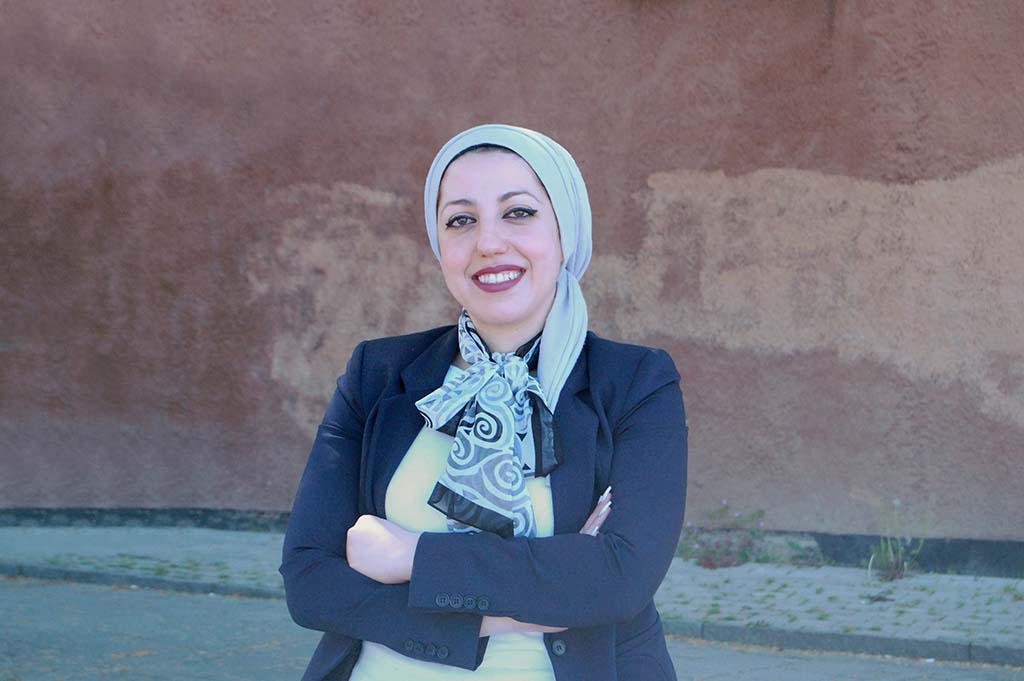They network to counteract water shortages in Palestine
Lack of access to water in Palestine creates a domino effect that affects all aspects of girls’ and women’s lives. But there are those who are working to make it better—like the country’s first female water network.

Today, only 4.5 percent of all those working with water, sanitation, and hygiene in Palestine are women. A year ago, the Palestinian Woman Water Practitioner Network (PWWPN) was founded by The Kvinna till Kvinna Foundation’s partner organisation Palestinian Hydrology Group—a non-governmental organisation that focuses on developing and protecting water and natural resources.
A strong platform
The network is the first one of its kind in Palestine, something that is both an opportunity and a challenge. It is a gender-based network including both women and men of all ages in the water sector, working on guaranteeing women’s rights to access and enjoy water services.
In addition, one of its main goals is empowering women’s role in water management and governance through actual contribution in policy-making and full participation in the water sector on a national, regional, and international level.
PWWPN targets and focuses on empowering professional working women, marginalized and rural women, female graduates, activists, and women experts in the water sector locally, nationally, and internationally.
The purpose of the network is to create a strong platform to exchange knowledge and ensure that gender issues are considered in the transboundary and regional water projects and policies with a more inclusive water and environmental sector by equally engaging women in the water sector at all levels (strategy and policy formulation, water management and implementation). The network also focuses on research and policy documents that address urgent issues such as climate change and conflict.
PWWPN has already made a difference. For example, they have appointed a steering committee for the network, which includes related Palestinian stakeholders such as members from the Ministry of Women’s Affairs, the Palestinian Water Authority and from the Palestinian Environment NGO’s network,
“When we put together the committee, we wanted to include stakeholders in managerial positions from all related sectors as well as governmental and non-governmental organisations to bring many different perspectives and experiences into the network,” says Eman Duwaik, coordinator at PWWPN.
Important initiatives
Part of the networks mission is to support women initiatives in the water sector both in West Bank and Gaza.
Such an initiative is related to the women’s rights organisation Palestinian Women Development Center. PWWPN has helped the center promote its vision and mission and achieve its goals. The center has also been supported by the network in application processes for funding.
PWWPN has also supported an initiative run by Asmaa Tabanjah, a young female researcher who is trying to create innovative solutions for water purification. The idea of the project is to use seeds from dates and olives and activated coal mixture as membrane for wastewater treatment. The initial results in the pilot project have been very positive and Asmaa will continue her work to scale up the project.
The network has also supported an initiative called Izola, a forum for fodder producers. The network has supported their work in growing fodder for animals with less water consumption and high productivity.
The Israeli occupation
Access to water is complicated due to the Israeli occupation.
“We don’t have full access to water because it is controlled by the Israeli occupation. They control more than 80 percent of the water in the West Bank and the Gaza Strip,” says Eman.
Eman continues:
“Contaminated water and buildings on Palestinian land, which in turn limit Palestinians’ access to natural resources, land, and clean water, are also major challenger. The occupation also affects farms and the groundwater.”
Consequences for girls and women
The lack of access to water creates a domino effect that affects all aspects of girls’ and women’s lives.
“Women are responsible of securing water at home and for the family members, as they are the ones who usually work in agriculture in Palestine. They are first to be affected when there is no land and water and despite that women are not given the whole opportunity to participate in the processes of developing and protecting their rights of managing and having access to water and land even if its implications are affecting women,” says Eman.
She continues:
“When there is no water, it will affect their health and create more diseases to which women are more vulnerable. The lack of water also means there is no guarantee of food, leading to more violence which we know affects women.”
The Kvinna till Kvinna Foundation has worked for women’s rights since 1993. We have worked with local women’s rights organisations in Palestine since 2001. Read more about our work in the region.